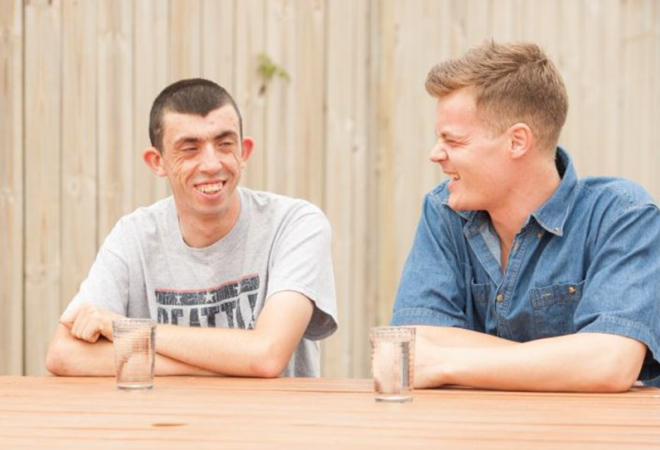
'Opening our eyes': The transfer of learning to enable better person-centred support services
Status
Completed: 31 July 2015
Project Details
A project, completed in 2015, to evaluate how effectively a disability support service organisation, Spectrum Care, is using training to support ‘training transfer’, the application of the knowledge and skills acquired from training in the workplace. A project undertaken by Careerforce, with project partners Spectrum Care and Te Pou o te Whakaaro Nui.
Aims
The main aim of the project was to:
- enable better person-centred support services
- describe the practice of systematic and in-depth evaluation of the effectiveness of training undertaken by a disability support service organisation, Spectrum Care.
Methodology
The project used a mixed method approach including:
- an online survey examining the use of training, and enablers and constraints to its use
- group and individual interviews to provide deeper understanding of enablers and constraints.
Team

Dr Nicky Murray
CareerforceStatus
Funding
$3,000.00 (excl GST)
Key Findings
The key findings from the project included:
- The evaluation showed good performance across the three types of training on pre-training factors known to enhance the likelihood of use. Trainees had good understanding of how training was expected to be of benefit to them and commonly saw it as an opportunity. There was consistent evidence that the training was providing the knowledge and skills required by trainees to meet practice and performance expectations.
- Many trainees described the training as a link between theory and their practical experience. The training provided frameworks for applying existing knowledge and experience within a theoretical and Spectrum-specific context. Trainees gained a better understanding of the person-centred approach and outcomes philosophy and other policies and procedures (e.g. code of rights, ethical considerations).
- The evaluation findings showed that Spectrum performed well on developing organisational and workplace environments that support the use of training. Spectrum’s commitment to training is shaping an environment of shared understanding and expectation where staff and management are increasingly ‘working from the same page’. Trainees described this environment as supporting their use of training in a variety of ways.
- The findings support the overall training strategy being implemented by Spectrum and the organisational commitment to learning and development. These inputs are contributing to the development of a learning-orientated culture within the organisation and an expectation and belief in performance enhancements.
- The evaluation identified that a range of supports are available to trainees. However, findings across all three types of training raise questions about trainees’ access to continuous post-training supports, including coaching and mentoring and opportunities for on-going learning on-the-job. Time and workload pressures on staff expected to undertake coaching and mentoring roles may help to explain the findings.
- Trainees regarded the practice and reflection on practice learning cycle commonly used during training as key to their learning. The findings on training follow-up seem to be challenging Spectrum as to how this learning cycle can be more explicitly supported and continued.
- The value of group work, where trainees learn from each other, was noted by trainees across all three types of training. Trainees also valued how the training process provided the opportunity to apply new knowledge and to rehearse new skills on-the-job and to learn from this through follow-up reflection in groups or in the classroom. Trainees considered the mix of complementary delivery methods used in the training as a key strength.
Key Recommendations
The key recommendations from the project included:
Benchmark for other organisations in the health and disability sector | The partnership between the workforce development agency, Te Pou, and Spectrum Care has provided a model and set a benchmark for other organisations in the health and disability sector, should they wish to better understand and reflect on the value and effectiveness of the training that they offer. The model could also be extended to other sectors or industries where workplace learning is predominant.
Next steps | Spectrum Care is now engaged in the next steps of its training effectiveness evaluation cycle. They have piloted a series of simple pre- and post- workshop tools designed to maximise ‘return on learning’ by supporting a partnership approach to learning and development between staff, managers, and the learning and research team. They are currently in the process of evaluating the value of these tools for initial learning goal setting, reflection on learning, and, application of learning within the workplace. Also, the next steps in supporting training effectiveness may include more work around the development of a reflective disposition.
Future research | Spectrum Care has further questions about whether the training is leading to intended practice and performance outcomes for trainees. Addressing these questions will require methodologies beyond the resources and scope of this evaluation. It will require a mix of methods (e.g. on-the-job assessments, observations) and ideally the integration of the assessment into routine performance appraisal.
A guide prepared by Nicky Murray.
(PDF, 609KB, 7-pages).
- 31 July 2015